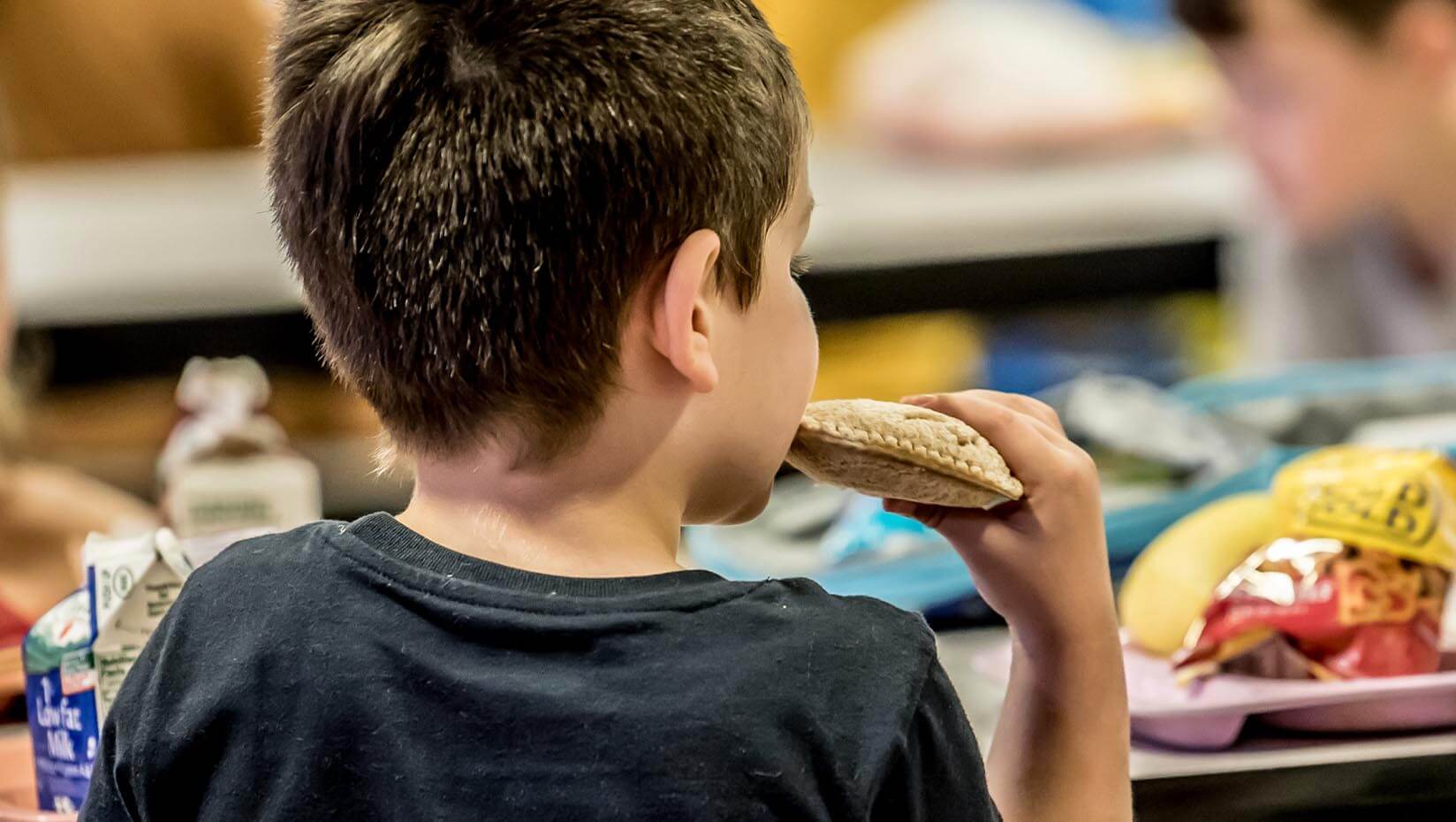
Eating better, discarding less: New toolkit helps Maine’s K-12 schools reduce food waste
Every year in Maine, about 361,000 tons of food are thrown away, almost 40% of all food produced in the state. That includes an estimated 4,200 tons from Maine’s over 400 K-12 schools, which serve about 170,000 students.
In an ongoing effort to reduce the amount of food being thrown away and improve student nutrition, the Maine Department of Education is launching a new Maine School Cafeteria “No More Wasted Food” DIY Toolkit this week as part of Maine Wasted Food Awareness Week. The toolkit, which will be shared directly with school officials, disseminates key insights from a study conducted by the Maine Departments of Education and Environmental Protection (DEP) and the University of Maine Senator George J. Mitchell Center for Sustainability Solutions.
The toolkit provides Maine schools with proven strategies for tracking and mitigating wasted food. One key strategy, for example, includes setting up “share carts” and “sorting stations” in cafeterias where students learn to prevent food from going into the trash.
“Schools who have piloted this work with UMaine have had great success. Being able to share this ‘No More Wasted Food’ toolkit with others, is a great way for more schools to take steps on their own to start this important work,” said Maine Child Nutrition Director Jane McLucas.
Eight schools have already worked with UMaine to pilot measures outlined in the toolkit. These pilot schools experienced up to a 25% decrease in wasted food. Discarded fruit and vegetables — the most thrown away foods — were reduced by as much as 64%. This has resulted in lighter trash bags, cleaner cafeterias and lower school costs.
“In the past, if a bagel had been wrapped but gone uneaten, it would have gone in the trash. And now we’re saving that bagel and putting it in our fridge for a student who may be hungry later,” said Beth Kellogg, principal of Brown Elementary School in South Portland.
The toolkit is the latest effort by the Mitchell Center’s Food Rescue MAINE team to reduce wasted food statewide. It comes one year after the Maine DEP released the first ever Maine Food Loss and Waste Generation Study, co-authored by Mitchell Center faculty and other researchers.
Keeping food out of the waste stream and reallocating it to people in need can help tackle food insecurity in Maine, which is the highest in New England. According to Feeding America, 180,000 people in Maine — about one in eight — experienced food insecurity in 2022, including one in five children.
Disposing of uneaten food is also more costly than it appears. The Mitchell Center breaks it down into three stages: the money wasted on uneaten food, the resources wasted to make the food — soil, water and labor — and the cost to dispose of food that is not eaten. Most uneaten food ends up in Maine landfills where it takes up valuable and limited space and begins to produce methane, which is harmful for the environment.
“As a small team working out of the Mitchell Center, we can only work with so many schools. But the new toolkit will give all Maine schools the opportunity to pursue the kind of work we’ve done with our pilot schools. And with the legislature moving aggressively to achieve the state’s wasted food goals, this toolkit has become even more important,” said William Brenneman, graduate research assistant who led the development of the toolkit.
The toolkit encourages schools to measure and track their wasted food reduction with weekly progress charts to show students how they can make a difference. The initiative also encourages schools to replace single-use plastics with reusable utensils and containers to further reduce waste and save money.
With the toolkit, students will also learn the importance of food and nutrients through an all-school assembly, informative videos and simple meal guidance. Students are also encouraged to serve as “Food Rescue Heroes,” assisting and educating their peers to prevent wasted food.
“We have had so many requests for the guidance and materials used in our pilot schools, so this toolkit makes all those key resources available for the first time. The toolkit not only leverages our successful strategies and insights to benefit all schools, but makes implementing them easier for both staff and students,” said Susanne Lee, faculty fellow at the Mitchell Center. “We hope this resource will lead to a reduction in food waste in all Maine schools, all while creating more cost-effective, sustainable and resilient food systems.”
The toolkit supports the state’s larger effort to achieve a targeted 50% reduction in wasted food by 2030, consistent with An Act Regarding the Reduction and Recycling of Food Waste Act, which was passed by the Legislature in June and became effective law this month. The new law will require large food generators, like schools, to keep food out of the trash.
For more information about food waste reduction, visit the UMaine Mitchell Center website.
Story by Mello Vancil, news intern
Contact: Marcus Wolf, 207.581.3721; marcus.wolf@maine.edu
